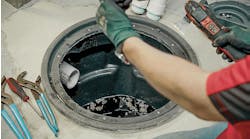The Contractors State Licensing Board (CLSB) was designed to protect California consumers by licensing and regulating the construction industry. Unfortunately, contactors are frequently forced to deal with unfounded complaints by owners to the CLSB, putting their licenses in jeopardy.
Once an initial complaint is filed, the CSLB commences an investigation that is often one-sided and based solely on the owner’s allegations. The contractor faces an uphill battle, fighting a presumption that work was performed improperly, and that the trusting, naive owner has been hoodwinked by the unscrupulous contractor.
If after an initial settlement conference the case has not been resolved, the matter is sent to arbitration, or a further investigation is launched by the CLSB.
It is vital that contractors know the best practices to utilize should a complaint be filed against them. Specifically, what steps can the contractor take to protect itself during the pre-arbitration and arbitration process?
While we focus on best practices for California contractors, these recommendations will most likely be available in most, if not all, states and should be considered when defending these types of claims.
Pre-arbitration
Initially, it is imperative that the contractor take the complaint seriously and respond to the CSLB’s early inquiries. A contractor should provide requested information, and make the CSLB aware in writing of any disagreements with the owner’s claims.
Contractors should demand that they be notified of any proceedings, and provided with copies of all documents concerning the complaint. If the matter is not dismissed outright, the CSLB normally will make efforts to mediate a resolution between the parties. While mediation is ideal, many matters are not resolved, and proceed to arbitration.
Arbitration
Often, the arbitration process will favor the complaining party. Since the filing of the complaint, the owner has had the advantage of having an open line of communication with the CSLB file administrator. The administrator, in turn, provides the relevant records and facts to the CSLB expert investigator, as well as the arbitrator.
As a result, the majority of facts presented at arbitration will be those supplied by the owner. Further, the CSLB expert investigator performs an inspection of the project, but is under strict rules to only review what is in the complaint. Moreover, the site investigation is almost always led by the owner, who will advocate those facts which best serve their claims.
After the inspection, the industry expert will issue a repair recommendation, including the cost. Next, an arbitration date is set and the parties await the hearing. At arbitration, there will be an arbitrator, usually an attorney, who is highly familiar with construction matters.
The owner begins the proceeding and is allowed to bring all witnesses and evidence that it is believed will prove claims and expenses. Upon completion of the owner’s case, the CSLB expert will provide and explain its report(s).
Only then, after many months of unfettered owner access to the CSLB, the expert’s investigation and report, and the commencement of arbitration, the contractor is finally given an opportunity to defend it. Most contractors view the CLSB’s protocol as unfair and unbalanced, mentally draining and wonder how they could have better protected their licenses to avoid this process.
While absent from the CSLB rules, there are numerous steps available to the contractor to prepare its case, and ultimately succeed at arbitration:
1) Request that the CSLB provide all records that the owner has submitted for arbitration. This will assist in preparing a defense, and will provide an understanding of how the owner is likely to proceed at arbitration.
2) Contractors should contact the CSLB, and request an inspection of the property with their own independent construction expert. An inspection of any sort is critical because by this time, the contractor will not have seen the site in its current condition for a period of months. It is optimum to proceed with the inspection after the preparation of the CSLB expert report (allowing contractors to “walk in the shoes” of the experts and review their analysis). Be prepared to take the non-invasive investigative steps to prepare your defense (i.e. photos, measurements). Finally, the arbitrator may attend this inspection, which allows contractors an opportunity to share with the arbitrator their own perspective on the work, repairs, etc.
3) Request a pre-arbitration meeting with the CSLB industry expert. If allowed, this meeting will greatly assist in understanding the expert inspection report for arbitration.
4) Request that the CSLB provide an opportunity to meet with any of the owner’s witnesses prior to arbitration. This provides an opportunity to question and understand the basis for, and relevance of, their testimony.
5) A contractor should provide all backup documents that support its position (i.e. invoices, photos, witnesses statements, repair estimate analysis, etc.). The arbitrator will consider any of these documents in making its ruling as they are not constrained by the strict evidentiary rules used in court. Use any records that will assist in a defense.
6) Finally, contractors should consider retaining legal counsel who is familiar with construction licensing claims. An experienced construction litigator will be able to guide a contractor through this process and can be absolutely instrumental in defending what are often meritless claims.
Dealing with a CSLB complaint can be a daunting process, and if not responded to properly can impact your license and your livelihood. For these reasons, the contractor should give any complaint against its license its immediate attention, and following these best practices will put contractors in the best possible position to defend any license challenges.
If you are outside of California, you can look up information about your own state licensing board at http://www.clsi.com/index.htm.
T. Darren Barker and Eric Rans are partners at Michelman & Robinson LLP, a national law firm with offices in Los Angeles, Orange County, San Francisco, Sacramento and New York. They are members of the Firm’s Construction Practice Group and headquartered in Orange County. For more information, please visit www.mrllp.com.

